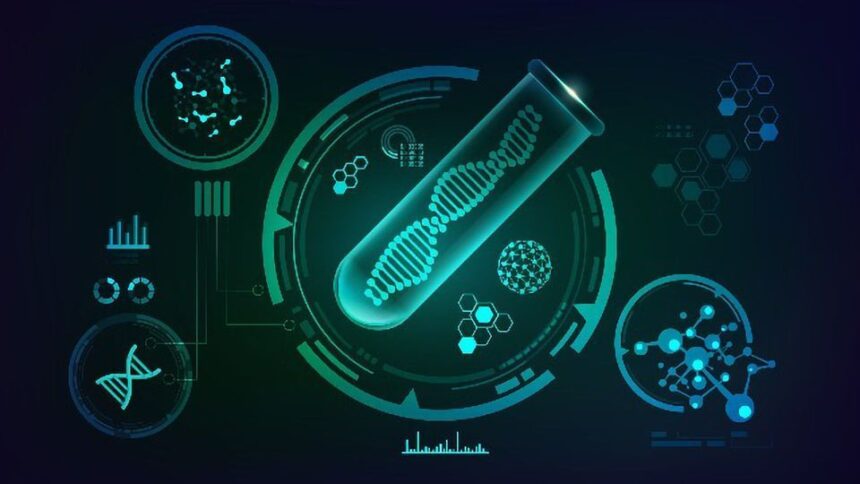Introduction
Synthetic biology stands at the forefront of modern scientific innovation, blurring the lines between biology, engineering, and computer science. It encompasses the design and construction of biological systems or the redesign of existing ones to achieve specific functions, often not found in nature. With the ability to engineer living organisms at the molecular level, synthetic biology holds immense promise across a wide range of applications, from healthcare and agriculture to energy and environmental sustainability. This article delves into the captivating realm of synthetic biology, exploring its origins, current capabilities, and exciting future prospects.
Origins and Evolution
The roots of synthetic biology can be traced back to the dawn of genetic engineering in the 1970s, with the advent of recombinant DNA technology. This groundbreaking technique allowed scientists to manipulate and recombine DNA sequences, paving the way for the creation of genetically modified organisms (GMOs) and the biotechnology revolution. However, it was not until the early 21st century that the field of synthetic biology truly began to take shape, propelled by advancements in DNA synthesis, genome editing, and computational modeling.
Harnessing Technology
At its core, synthetic biology harnesses the tools and principles of engineering to design and construct biological systems with novel functionalities. Central to this endeavor is the concept of genetic circuits, analogous to electronic circuits in traditional engineering, which govern the behavior of engineered organisms. By assembling and fine-tuning these genetic circuits, scientists can program cells to perform specific tasks, such as producing valuable chemicals, sensing environmental signals, or responding to stimuli in predetermined ways.
Applications in Healthcare
One of the most promising applications of synthetic biology lies in healthcare, where it has the potential to revolutionize diagnostics, drug discovery, and personalized medicine. Researchers are exploring how engineered microbes can be used to produce pharmaceuticals, enzymes, and biomaterials more efficiently and sustainably than traditional chemical synthesis methods. Furthermore, synthetic biology approaches are being employed to develop novel therapies, such as gene editing technologies for treating genetic diseases and cancer immunotherapies that harness the power of the immune system to target tumors.
Agricultural Advancements
In agriculture, synthetic biology offers solutions to some of the most pressing challenges facing global food security and sustainability. By engineering crops for improved resilience, nutrient uptake, and yield, scientists aim to address the growing demand for food in the face of climate change, soil degradation, and population growth. Additionally, synthetic biology holds the promise of developing bio-based alternatives to conventional pesticides, fertilizers, and herbicides, reducing the environmental impact of farming practices while enhancing crop productivity.
Environmental Sustainability
Synthetic biology has the potential to play a pivotal role in mitigating environmental degradation and combating climate change. Researchers are exploring bio-based solutions for producing renewable fuels, biodegradable plastics, and sustainable materials using engineered microorganisms and plants. Moreover, synthetic biology approaches are being applied to environmental remediation, where engineered organisms are deployed to clean up pollution, degrade hazardous chemicals, and restore ecosystems damaged by human activities.
Ethical and Societal Implications
As with any transformative technology, synthetic biology raises important ethical, social, and regulatory considerations that must be addressed responsibly. Concerns about biosafety, biosecurity, and unintended consequences underscore the need for robust governance frameworks and public engagement efforts to ensure the safe and ethical deployment of synthetic biology applications. Moreover, questions of equity, access, and intellectual property rights loom large in discussions about the equitable distribution of the benefits and risks of synthetic biology innovations.
Conclusion
Synthetic biology represents a paradigm shift in our ability to engineer and manipulate living systems, offering unprecedented opportunities to address some of the most pressing challenges facing humanity. From revolutionizing healthcare and agriculture to advancing environmental sustainability and beyond, the potential applications of synthetic biology are as vast as they are transformative. However, realizing this potential will require collaboration across disciplines, careful consideration of ethical and societal implications, and a commitment to harnessing the power of synthetic biology for the benefit of all. As we stand on the brink of a new era in biology, the possibilities are limited only by our imagination and our willingness to embrace the unknown.





